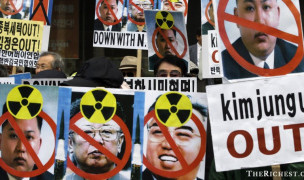 5 Terms
5 TermsHome > Terms > English (EN) > Internet
Internet
The Internet is presented by the highest government authority as “a global matrix of interconnected computer networks using the Internet Protocol (IP) to communicate with each other” that “encompass(es) all such data networks and hundreds of applications” (Clinton and Gore 1997). Its model of a decentralized network, open to all and to all sorts of information, with “smart” receivers (computers) that interact with each other has captured popular as well as technocratic imaginations as the “information super-highway” for a post-industrial service economy. By the late 1990s, some foresaw it absorbing all other forms of communication into a new model, alternative both to the telephone system and to mass media. Others saw it as a new world of capitalism, domain of e-commerce and volatile, com stocks.
The Internet originated in the workaday world of engineers, who conceived and built technologies for sharing scarce and distant computer resources in the 1960s. Beginning with remote access and transfer of electronically stored data, successive additions of electronic mail (1972) and electronic bulletin boards, known as Usenet (1980), spread computer networking from research labs throughout universities, while increases in capacity made it available for less technical, even avocational uses. Non-engineers began creating databases that could be accessed over the Internet from anywhere in the world, and creation of the “user-friendly” World Wide Web in 1990 finally made it accessible to the public. From four computers linked in a demonstration of the software (TCP/IP) that enabled the Internet in 1977 to 200 in 1983, the number of computers linked on the Internet grew to over 6 million in 1995 and continued increasing at 16 percent per month.
In 1991 the National Science Foundation that had sponsored the Internet project lifted restrictions on commercial use, which surpassed education and research uses by 1993.
Business uses and stock investments based on such usages dominated discussion of the Internet by the end of the decade.
Users soon noticed that the Internet obliterates geography and puts potentially peripheral places on a par with what have been centers. Scandinavian and provincial land-grant universities were enthusiastic adopters, and USENET, the software for open discussion of thousands of topics, was invented in Australia, a leader in online libraries.
Visions of “virtual” libraries in cyberspace, and thus of a newly leveled playing field, accessible instantly anywhere in the world, motivated such efforts. At the same time, minor technologies for video conferencing, chat and what amounts to telephone calls via the Internet accelerate pressures to deregulate telephone monopolies and restructure telecommunications around functions (such as delivering a signal or providing content) rather than around enduses, such as watching television, talking on the phone or transmitting data.
Convergence is not uniformly welcomed. If it’s illegal, it’s on the Internet: pornography and political oppositions found controversial outlets, followed by copyright infringement and mail fraud. What had been contained is freed by the Internet principle that all communication and information is equal, and boundaries everywhere are threatened. The US Congress passed a Communications Decency Act in 1995 that the Supreme Court ruled to be an unconstitutional infringement of 1st Amendment rights to free speech in 1997. Threats of piracy and politics spread worldwide: Singapore employs censors, and China declared that the Internet will be “just for business” in that country, while the government newspaper of Iraq denounced the Internet as an “American means to enter every house in the world” and “the end of civilizations, cultures, interests, and ethics” (Associated Press, February 17, 1997).
Such anxieties mark shifting boundaries and fragmentation of authority in the postmodern world. Generally fears of electronic surveillance have given way to boosterism, led by US government promotion of a national information infrastructure.
Nonetheless, liberal humanists tied to older means of communication share concerns over information free-for-all with parents at home and with authoritarian regimes overseas.
Consumer advocates fear false marketing as well as well-targeted ploys; children and women are often portrayed as particular victims of Internet predators.
What the Internet fosters is a broad creolization and emergence of intermediate communities and mixed discourses that both increase alternatives and make them more public. In this respect, the Internet resembles less the mass media, with which it is often compared, than the print capitalism that brought ethno-linguistic communities into the early modern period. It favors horizontal or what enthusiasts call “virtual” communities of special interests that can be worldwide and almost instantaneously accessible. This is probably a more important impact of the Internet than visions of tele-commuting, cyberselves or wired democracy.
It is easy to overlook how the Internet itself is a cultural product and socially organized, just as anxieties overlook how much it changes in going public. The Internet is actually a collection of technologies that began as work-arounds and embody work habits and values of engineers. E-mail, discussion groups and the World Wide Web fit into an overall communications ecology and enhance the relative power or ability of users to reach others, to form a public, to bypass conventional gate-keepers and, in some cases, establish new publics. Increasingly expectations that it may be the leading edge of economic development, whether or not of a “third wave” or “information age,” are the Internet’s license. This has underpinned competition for control of access providers, as well as competition among businesses on and off the net. New Internet giants like Yahoo, Amazon.com and others are surrounded by service providers, “navigators” and other commercial sites. These are advertising heavily in print and televisual media, producing a continual crossover as well as concerns about changes in local business (and the tax structures based on them).
The Internet’s social structure has evolved from an engineering experiment into government-by-steering committee, while its culture has long since expanded beyond engineering values to those of the marketplace in a larger context set by deregulation and capitalist triumphalism. These values and structures are, in turn, further modified by say sinicization or similar domestication elsewhere as, for instance, exemplified in the overwhelming focus on the self that dominated thinking about the Internet in our society.
In all, the Internet has become a lightning rod and laboratory for the linkage of community to communication in the post-industrial society.
- Part of Speech: noun
- Synonym(s):
- Blossary:
- Industry/Domain: Culture
- Category: American culture
- Company: Routledge
- Product:
- Acronym-Abbreviation:
Other Languages:
Member comments
Terms in the News
Billy Morgan
Sports; Snowboarding
The British snowboarder Billy Morgan has landed the sport’s first ever 1800 quadruple cork. The rider, who represented Great Britain in the 2014 Winter Olympics in Sochi, was in Livigno, Italy, when he achieved the man-oeuvre. It involves flipping four times, while body also spins with five complete rotations on a sideways or downward-facing axis. The trick ...
Marzieh Afkham
Broadcasting & receiving; News
Marzieh Afkham, who is the country’s first foreign ministry spokeswoman, will head a mission in east Asia, the state news agency reported. It is not clear to which country she will be posted as her appointment has yet to be announced officially. Afkham will only be the second female ambassador Iran has had. Under the last shah’s rule, Mehrangiz Dolatshahi, a ...
Weekly Packet
Language; Online services; Slang; Internet
Weekly Packet or "Paquete Semanal" as it is known in Cuba is a term used by Cubans to describe the information that is gathered from the internet outside of Cuba and saved onto hard drives to be transported into Cuba itself. Weekly Packets are then sold to Cuban's without internet access, allowing them to obtain information just days - and sometimes hours - after it ...
Asian Infrastructure Investment Bank (AIIB)
Banking; Investment banking
The Asian Infrastructure Investment Bank (AIIB) is an international financial institution established to address the need in Asia for infrastructure development. According to the Asian Development Bank, Asia needs $800 billion each year for roads, ports, power plants or other infrastructure projects before 2020. Originally proposed by China in 2013, a signing ...
Spartan
Online services; Internet
Spartan is the codename given to the new Microsoft Windows 10 browser that will replace Microsoft Windows Internet Explorer. The new browser will be built from the ground up and disregard any code from the IE platform. It has a new rendering engine that is built to be compatible with how the web is written today. The name Spartan is named after the ...
Featured Terms
mulberry
Morus, a genus of flowering plants in the family Moraceae, comprises 10–16 species of deciduous trees commonly known as mulberries growing wild and ...
Contributor
Featured blossaries
Marouane937
0
Terms
58
Blossaries
3
Followers
5 of the World’s Most Corrupt Politicians
 5 Terms
5 Terms
dnatalia
0
Terms
60
Blossaries
2
Followers
Herbs and Spices in Indonesian Cuisine
 10 Terms
10 Terms
Browers Terms By Category
- Social media(480)
- Internet(195)
- Search engines(29)
- Online games(22)
- Ecommerce(21)
- SEO(8)
Online services(770) Terms
- Alcohol & Hydroxybenzene & Ether(29)
- Pigments(13)
- Organic acids(4)
- Intermediates(1)
Organic chemicals(47) Terms
- Advertising(244)
- Event(2)
Marketing(246) Terms
- General boating(783)
- Sailboat(137)
- Yacht(26)



